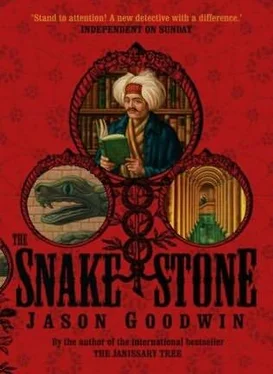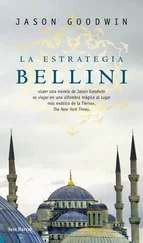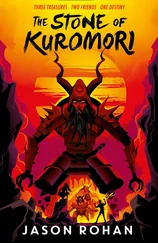Jason Goodwin - The snake stone
Здесь есть возможность читать онлайн «Jason Goodwin - The snake stone» весь текст электронной книги совершенно бесплатно (целиком полную версию без сокращений). В некоторых случаях можно слушать аудио, скачать через торрент в формате fb2 и присутствует краткое содержание. Жанр: Исторический детектив, на английском языке. Описание произведения, (предисловие) а так же отзывы посетителей доступны на портале библиотеки ЛибКат.
- Название:The snake stone
- Автор:
- Жанр:
- Год:неизвестен
- ISBN:нет данных
- Рейтинг книги:4 / 5. Голосов: 1
-
Избранное:Добавить в избранное
- Отзывы:
-
Ваша оценка:
- 80
- 1
- 2
- 3
- 4
- 5
The snake stone: краткое содержание, описание и аннотация
Предлагаем к чтению аннотацию, описание, краткое содержание или предисловие (зависит от того, что написал сам автор книги «The snake stone»). Если вы не нашли необходимую информацию о книге — напишите в комментариях, мы постараемся отыскать её.
The snake stone — читать онлайн бесплатно полную книгу (весь текст) целиком
Ниже представлен текст книги, разбитый по страницам. Система сохранения места последней прочитанной страницы, позволяет с удобством читать онлайн бесплатно книгу «The snake stone», без необходимости каждый раз заново искать на чём Вы остановились. Поставьте закладку, и сможете в любой момент перейти на страницу, на которой закончили чтение.
Интервал:
Закладка:
The big tank was fed, as far as he could see, by a spigot set in the wall, and at various points around its edge the water shimmered over into smaller tanks, like basins. In the great tank the water seemed black until it spilled across the lip: this is how the water is divided, he thought, observing the way the basins were set against the walls, each basin higher than the next, each one letting the water gurgle across its lip to the basin below.
Yashim went forward cautiously, balancing on the broad rim of the great tank.
He glanced back at the spigot. Water was pouring from it in a steady stream. It seemed impossible that a single spout like this could serve so many people across the huge city-the standpipes and the fountains. Unfaltering, never-ending, the stream twisted and flexed as if it were alive. Looking around, Yashim could see the small openings set in the walls where the flow was channeled out across Istanbul, a series of little black mouths, like snake holes. Some of them were stopped with rags. Some were open.
Yashim shuddered involuntarily. It was cold in the siphon.
On the lowest basin of them all, about six feet beneath the tank where Yashim was standing, lay the mouth of a low tunnel, far larger than all the rest, into which the water skimmed so broad and shallow that its motion was imperceptible.
Yashim descended from basin to basin, treading on the rims, feeling the air grow colder with every step.
The tunnel puzzled him. Even if all the outflows, the little pipes, were blocked by rags, the tunnel would never come close to overflowing. The largest amount of water that could flow down it came from the spigot above. He glanced up. Its discharge was no thicker than a man’s arm.
As he watched, a silver ball dropped from the spigot and floated gently across the great tank.
And at the same moment a great shaft of light illuminated the tank and the basins of water, and sent huge ripples of their reflection across the walls and roof.
The door swung open.
And in the eruption of the glare, Yashim did the only thing he could.
He ducked down and made a dive for the tunnel.
77
Far away, at the other end of the city, Amelie stood back and shielded her eyes with her free hand, like a woman trying to see far off on a sunlit day.
Very slowly she turned her hand to let her eyes travel upward, every moment revealing more details of the celestial form of the greatest building ever raised on earth.
She saw the great bronze doors that were cast two thousand years before in the sands of Tarsus. The pilasters, sculpted from marble, gleaming white in the sun. The windows of the tympanum, black and small and crisp, their decorative ironwork all but invisible in the glare, and the great arch curving above them, slender as a bird’s wing, strong enough to assume the weight of the great dome.
She saw, and did not see, the graceful minarets that fluted upward from the squinches of the dome.
She saw the red ocher of the great drum overhead, pierced with windows to admit the light. She saw the lead cappings of the dome.
And at the top, high above, she saw a silver crescent on its slender rod, a crescent that stood where the cross had stood for a thousand years, before the last days of May 1453.
In the last days, the cross had glowed with an eerie light. It had been concealed by fog. It saw the sky turn red and the crescent moon glow like a sliver in the dark, with the Ottomans readying themselves outside the walls, preparing for a final assault.
Slowly, Amelie lowered her hand.
She had seen the Pantheon, in Rome: a tribute to Roman strength and the Romans’ faith in concrete. She had seen the shattered remnant of the Parthenon. She had lain awake at night, willing herself to dream of the Pyramids, whose massive and enigmatic bulk she had met with in the great work of the Napoleonic savants.
But Aya Sofia was a case apart: the last and grandest gesture of the ancient world.
And the world had been trying to measure up to it ever since.
She raised her arms, to frame the vision between her two hands. There was, she thought fiercely, only one more thing that remained to be done.
She began to walk forward, toward the Great Church.
78
Yashim pulled himself into the tunnel like a snake disappearing into its hole. Light from the doorway danced and sparkled on the walls: ahead lay only darkness.
Two steps. Five steps. He was deep inside now, crouched in the dark. He turned around, with difficulty, resisting the urge to press his back in panic against the low roof of the tunnel. Breathing hard, he looked back at the mouth of the tunnel, toward the light.
He saw a pair of sandaled feet approach the rim of the great tank. The man knelt down. Yashim could see his knees, and the arm reaching into the tank. The man stood up. He began to move along the rim of the tank as Yashim had done moments before. He took a step down, and stopped. After a moment he moved on, disappearing from view.
The man was coming down the basins like a semicircular flight of stairs, stopping and opening the little pipes as he came.
Yashim took several steps backward, shrinking farther into the darkness of the tunnel.
As he watched, an orange light began to flicker against the side wall, close to the opening. He had not realized that the man was carrying a torch.
Yashim’s mind raced, riffling through a pack of images. He saw the boy waiting for his father on the low, stone wall.
He saw the sun setting. The boy at the door of the siphon, calling his father’s name. A little hand closing around a silver ball. A dented little hollow ball like the one that had fallen from the spigot just minutes before. It seemed an age.
Yashim worked himself around, facing the darkness. Feeling the horror of a light at his back. Feeling the weight of the tunnel on his bent neck.
He put out his hands, touched the rough masonry on either side, and began to creep forward into the dark.
79
Faisal al-Mehmed nodded his head gently at the faithful as they slipped off their shoes and proceeded, in chattering groups, into the Great Mosque for prayer. For himself, he wished that they did not chat so much; he wished, above all, that they had washed themselves in the fountain before they took the step of entering the holy precinct-but there it was, he was an old man and people had changed. Maybe, he told himself, every old man believes that the people have changed; but maybe every old man is right. For every generation from the Prophet (peace be on him) did seem to be doomed to be less reverent than the next. After the Prophet (peace be on him) came four men who were good men, and great warriors, men who had expanded the Domain of Peace beyond all limits-and yet they were men, and had died at the hands of men, and at the end of the four there had come confusion, and divisions within their house.
A Turk with a black mustache and a fez and a heavy belly kicked off his slippers and bent, awkwardly, to pick them up and hand them to Faisal al-Mehmed.
Faisal tucked them away. The fat man went into the mosque.
Faisal al-Mehmed hoped the man would remove his fez. He himself wore a green turban, signal of his descent from the Prophet (peace be on him). When men saw the green turban, wherever it was, even far from the mosque, they would be reminded of the Prophet (peace be on him), and so they would adjust their behavior accordingly. A man could not be near a mosque every moment of his life, and Faisal was well aware that very few men could be close to his mosque, the greatest mosque in all Islam; some had traveled many miles, even across whole lands and peoples, to visit this place. But those who were descended from the line, wearing the green turban-they were legion. Their turban was a precept. And that was good, a blessing upon the faithful.
Читать дальшеИнтервал:
Закладка:
Похожие книги на «The snake stone»
Представляем Вашему вниманию похожие книги на «The snake stone» списком для выбора. Мы отобрали схожую по названию и смыслу литературу в надежде предоставить читателям больше вариантов отыскать новые, интересные, ещё непрочитанные произведения.
Обсуждение, отзывы о книге «The snake stone» и просто собственные мнения читателей. Оставьте ваши комментарии, напишите, что Вы думаете о произведении, его смысле или главных героях. Укажите что конкретно понравилось, а что нет, и почему Вы так считаете.












